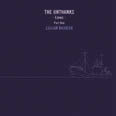Lines: Parts One, Two and Three
Author: Julian May
View album and artist detailsAlbum and Artist Details
Artist/band: |
The Unthanks |
Label: |
Rabble Rouser |
Magazine Review Date: |
April/2019 |
Lines, the latest of The Unthanks' many ambitious and innovative projects, is a trilogy of song cycles, each with a female inspiration at their heart. Somewhere between an EP and a full album in length these are ‘MPs’, medium players, and are available separately or as a set in a modestly designed slipcase.
Part One was written for The Last Testament of Lillian Bilocca, a theatre piece by Maxine Peake performed in 2017 when Hull was the UK City of Culture. This told the story of Lillian Bilocca, whose work was skinning cod, and whose father, husband and son were all fishermen. After the loss of three Hull trawlers and 58 men in 1968, Bilocca campaigned with a group of women, the ‘headscarf revolutionaries,’ for improved safety standards – nothing unreasonable, just full crews, safety equipment, radio operators and medical support. Bilocca's campaign was successful but she was vilified and blacklisted. Never employed in the fishing industry again, she eked out a living as a cleaner. ‘The Sea is a Woman’ is a powerful portrait in a song of a woman who sees something of her own strength in the sea, not so much her enemy as the men she must face on land.
Part Two is songs written, and poems set, for a project marking the centenary of World War I. ‘Roland and Vera’, with Sam Lee also singing, is a heartrending piece adapted from letters written by Vera Brittain and the soldier she loved, Roland Leighton. Brittain wrote her last letter to him knowing that her fiancé had already been killed. ‘Socks’ by Jessie Pope, is a troubling choice. Pope wrote gung-ho verses encouraging young men to enlist (and the giving of white feathers to those reluctant to do so). But in Adrian McNally's setting it becomes a poignant expression of concern for a cold soldier, a sensitive soul stuck in a trench somewhere, and the socks she knits are the practical as well as symbolic expression of this. The line, ‘He'll come out on top somehow,’ so facile when read, becomes here, quietly sung and repeated, not an assurance but a fragile hope. The voices of the Unthank sisters, gentle, almost frail, and the weaving of their harmonies, suit such material perfectly.
Part Three is a series of settings of poems by Emily Brontë. Adrian McNally plays his accompaniments on the author's own piano in The Parsonage in Haworth, the Brontë's home. This venerable instrument, made between 1810 and 1815, has to be played gently. This, and the Unthanks' vocal style – more yearning than urgent – works well with the more reflective poems such as ‘Shall Earth No More Inspire Thee’. But settings and singing never rise to the wildness of Emily Brontë's fiercer writing. ‘High waving heather, ’neath stormy blasts bending... wild forest lending/One mighty voice to the life-giving wind...’ needs some Sturm und Drang. Heathcliff was born of Emily Brontë's imagination, but there is little wuthering in these settings. Even the gloom of ‘Deep, Deep Down in the Silent Grave’ has a gothic grandeur that demands more extreme expression. Part Three is, sadly, simply too polite.

